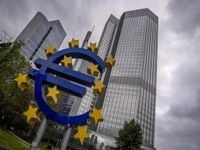European shares slipped on Wednesday, April 16, 2025, following a strong start to the week, as growing concerns over corporate profits weighed heavily on the market. The pan-European STOXX 600 index fell by 0.9% as of 0706 GMT, marking a downturn after two days of gains. Other major regional indexes, including those from Germany, France, Spain, and the UK, also experienced declines ranging from 0.3% to 0.8%.
The drop in European shares was largely influenced by Nvidia's announcement that it would incur up to $5.5 billion in charges due to new U.S. export restrictions on its advanced chips intended for sale in China. The news sent shockwaves through the technology sector, which fell by 3.2%, leading the declines among various sectors.
Nvidia's significant charge is tied to the company's most advanced chip, the H20, which has been affected by U.S. export rules that require a license for its sale to China. This move is part of the U.S. government's broader strategy to maintain its technological edge in artificial intelligence amid escalating tensions with China. According to Nvidia, these charges are expected to be reflected in its first-quarter earnings report, which ends on April 27, 2025.
In a regulatory filing made on Tuesday, April 15, 2025, Nvidia stated that the government informed them of the indefinite enforcement of the new export rule, which has significantly impacted their business operations in China. The company noted, "First quarter results are expected to include up to approximately $5.5 billion of charges associated with H20 products for inventory, purchase commitments, and related reserves." This announcement led to a more than 6% drop in Nvidia's stock after hours on April 15, 2025.
The ripple effects of Nvidia's situation were felt across the Asian markets as well, where key suppliers like TSMC and Samsung Electronics saw their shares decline following the news. TSMC's shares fell by 2%, while Samsung's dropped by 2.6%. Other semiconductor companies, including Advantest and SK Hynix, also experienced declines, with Advantest dropping by 5% and SK Hynix slumping by 3%.
Analysts have expressed skepticism regarding the rationale behind the export ban on Nvidia's H20 chips. A note from Bernstein analysts pointed out that banning the H20 chip seemed illogical, stating, "H20 performance is low, well below already-available Chinese alternatives. A ban essentially simply hands the Chinese AI market over to Huawei." They estimated that Nvidia's H20 sales in China amounted to approximately $12 billion in revenue, which, while significant, pales in comparison to the broader market.
The U.S. government's decision to impose stricter export controls is viewed as a measure to prevent China from developing its own supercomputing capabilities, which poses a strategic risk to U.S. interests. The Biden administration's export rule does not entirely halt the export of H20 chips; rather, it requires Nvidia to obtain a license for their export—a process that adds layers of complexity and potential costs for the company.
As the market braces for Nvidia's forthcoming earnings report, analysts are also keeping a close eye on the European Central Bank's policy meeting scheduled for Thursday, April 17, 2025. Many market participants are anticipating a 25-basis-point rate cut, which could further influence market dynamics in the coming days.
The overall outlook for corporate earnings in Europe has soured, with analysts now projecting a 3% drop in first-quarter profits, which is a deeper decline than the previously expected 2.2% decrease. This shift in expectations reflects the mounting pressures faced by companies amid ongoing geopolitical tensions and regulatory challenges.
In summary, the combination of Nvidia's significant financial charges due to U.S. export regulations and the broader concerns regarding corporate profitability has led to a notable decline in European shares. As markets adjust to these developments, investors remain vigilant, particularly with the European Central Bank's upcoming decisions likely to play a critical role in shaping the economic landscape.




